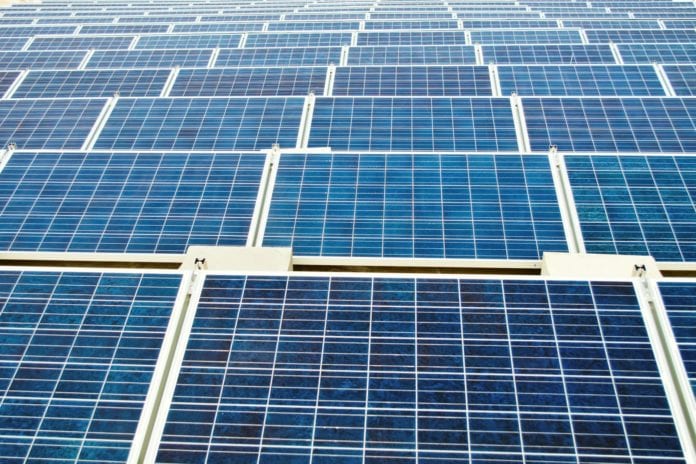Australian telecommunications company Telstra is protecting itself from rising energy prices by committing to a long-term corporate power purchase agreement with renewable energy producer RES Group and supporting the construction of a new, 70-megawatt solar farm.
Telstra is funding the new solar farm to the tune of AU$100 million (about US$74 million). Telstra is one of the largest energy users in Australia and the solar energy project will help provide it with “long term energy security to mitigate the risk of energy price volatility,” according to RES Group. The Australian power market has been volatile and seen significant price spikes since the carbon tax in that country was lifted in 2014, with prices reportedly doubling according to recent analysis.
“Energy is no different to say currency or interest rates, and whether it’s Telstra or other corporates, it’s not unreasonable to think corporates should be taking more responsibility and control over managing that risk,” Ben Burge, Telstra’s executive director of energy, told The Australian. “There is an opportunity here available to corporates, for them to take control rather than simply calling on others to fix the problem.”
Burge said that Telstra consumes about 1% of Australia’s energy to power its networks; The Australian has reported that Telstra’s energy costs spiked by $100 million in the past year.
The nearly 400-acre solar farm project in Queensland, Australia was recently approved and will ultimately deliver enough power to supply 35,000 homes — all of which will be purchased by Telstra. Construction is expected to start later this year and the site should be operational by the second half of 2018, according to RES. Telstra is also looking to leverage the energy storage and back-up power generation capabilities within its network on the wholesale energy market.
“As a company with a large portfolio of physical infrastructure across Australia, we see some real opportunities to use technology to become more efficient at managing our energy use. Solar energy and improvements in battery technology will be an area of particular focus, and we are looking at potential partnerships with energy and technology companies as well as our enterprise customers. The home is another area where technology is creating opportunities in the energy sector,” wrote Telstra Group Executive Cynthia Whelan in a blog entry last year, just before Burges joined the telco. Whelan said that she saw many smart home devices at the Consumer Electronics Show that focused on increased energy efficiency — hinting that perhaps an energy focus could be an internet of things play for Telstra since “energy related devices, such as smart meters, smart light bulbs and connected white goods, are helping drive compound annual growth for Connected Home devices of more than 25% over this period.”
RES has struck similar long-term energy purchasing deals with other large tech companies such as Google, which has said that this year it will purchase renewable energy equivalent to 100% of its gobal usage.

